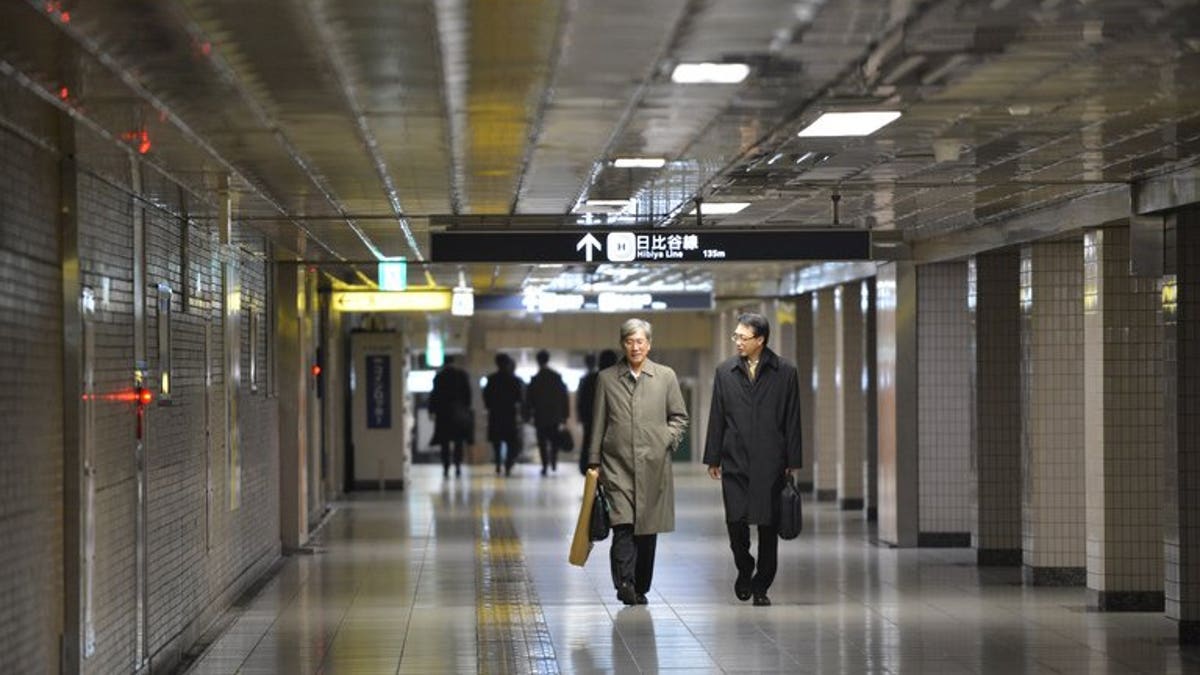
Businessmen walk on a concourse at a subway terminal in downtown Tokyo on December 28, 2012. Japan's army of dark-suited salarymen are scraping by on a monthly allowance from their wives that is less than half what they got in the 1980s bubble years, a survey has shown. (AFP/File)
TOKYO (AFP) – Japan's army of dark-suited salarymen are scraping by on a monthly allowance from their wives that is less than half what they got in the 1980s bubble years, a survey has shown.
Despite frequently being the sole breadwinner at home, many Japanese husbands hand over their entire pay packet to the woman of the house, who manages the family's bills and balances the books.
During the heady days of the late 1980s when the country was awash with cash, husbands enjoyed the high life with 80,000 yen (now $800) a month.
But the average salaryman in today's more frugally-minded Japan has just 38,457 yen to play with, Shinsei Bank said in a recent study.
The bank, which has surveyed men's allowances since 1979, said the reading this year was the lowest since 1982.
To keep a lid on expenses, the average man budgets 518 yen for lunch every day, data from 1,000 men aged between their 20s and their 50s showed.
They allocate 7,689 yen every month for after-work beers -- often almost-compulsory bonding sessions with their colleagues -- up 746 yen from last year, the bank said.
Japan has suffered years of deflation that have seen prices stagnate or fall. This means that the same amount of money buys more today than it did in the early 1990s.
While deflation is apparently good for individuals, it is bad for the economy as a whole because it encourages shoppers to put off purchases in the knowledge the same product will cost less next month.
This means companies make less money and are reluctant to give pay rises or employ more people, making consumers even less willing to spend.
Prime Minister Shinzo Abe, who swept to power in December, has launched a series of bold policy measures aimed at breaking this vicious circle.
The moves -- dubbed "Abenomics" -- have included huge government spending pledges and a flood of cash as the central bank printed more money.
This has sent the value of the yen tumbling and pushed the stock market up to multi-year highs.
Economists say there has been some evidence of more wealthy people splurging, but with pay rises yet to filter through to the average salaryman, no widespread spending trend has emerged.
"Despite the Abenomics effect, which has seen corporate performance improve and stock prices go up, salaried men have not yet felt it in their pocket," the bank said.








































